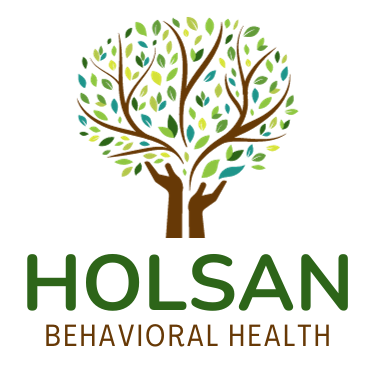Understanding Borderline Personality Disorder (BPD)
Borderline Personality Disorder (BPD) is a complex mental health condition characterized by intense emotional instability, impulsivity, and difficulty maintaining stable relationships. Individuals with BPD often experience extreme mood swings, fear of abandonment, and difficulties regulating their emotions. This disorder affects approximately 1.6% of the population but is frequently misunderstood.
Living with BPD can feel like an emotional rollercoaster, where small triggers lead to overwhelming reactions and strained relationships. The challenges of navigating intense emotions and interpersonal difficulties can lead to feelings of isolation and distress. However, with the right support system and therapeutic interventions, individuals with BPD can develop effective coping mechanisms and achieve emotional balance.
At Holsan Behavioral Health, we recognize the impact BPD can have on daily life and relationships. Understanding the symptoms and challenges is the first step toward effective management and healing.
Key Symptoms of Borderline Personality Disorder
The primary symptoms of BPD include:
- Intense and unstable relationships
- Fear of abandonment
- Rapid mood changes
- Impulsive behaviors (e.g., reckless spending, substance abuse, binge eating)
- Chronic feelings of emptiness
- Inappropriate or intense anger
- Self-harming behaviors or suicidal thoughts
- Dissociation or feelings of detachment from reality
These symptoms can significantly impact an individual’s personal and professional life, making it challenging to maintain relationships and emotional stability.
Challenges in Relationships and Emotion Regulation
One of the hallmark difficulties of BPD is the challenge of maintaining stable and healthy relationships. Individuals with BPD often struggle with intense emotional reactions to perceived rejection or abandonment. Small misunderstandings can escalate into severe conflicts, leading to a cycle of emotional highs and lows within relationships. This unpredictability can strain relationships with family, friends, and romantic partners.
Emotion regulation is another key struggle. Those with BPD may experience emotions more intensely and have difficulty soothing themselves in times of distress. This can lead to impulsive decisions, self-sabotaging behaviors, and heightened anxiety or depression. The inability to manage these emotions effectively often results in feelings of frustration, shame, and isolation.
Holsan Behavioral Health emphasizes the importance of developing strong emotional regulation strategies to help individuals achieve stability in their personal and social lives.
7 Powerful Strategies for Managing Borderline Personality Disorder
While BPD can be challenging to navigate, there are effective strategies to help individuals manage their symptoms and build healthier relationships:
- Dialectical Behavior Therapy (DBT): DBT is a widely recognized therapy that teaches emotional regulation, distress tolerance, mindfulness, and interpersonal effectiveness. Many individuals with BPD find DBT to be transformative in improving their emotional stability.
- Mindfulness Practices: Engaging in mindfulness techniques, such as meditation and deep breathing, can help ground emotions and reduce impulsivity.
- Healthy Communication Skills: Learning to express feelings in a non-confrontational manner and setting clear boundaries can improve relationships and reduce misunderstandings.
- Journaling and Emotional Tracking: Keeping a journal of emotions and triggers can provide insights into patterns and help identify effective coping mechanisms.
- Support Networks: Joining BPD support groups or seeking guidance from mental health professionals can provide essential encouragement and advice.
- Medication Management: In some cases, medication may be prescribed to manage mood instability, anxiety, or depression associated with BPD.
- Seeking Professional Help: Working with experienced mental health professionals, such as those at Holsan Behavioral Health, can provide the necessary support and guidance to navigate BPD effectively. Learn more here.
Seeking Support and Professional Guidance
Managing BPD can
feel overwhelming, but it is important to remember that help is available. Holsan Behavioral Health offers a compassionate and supportive environment where individuals can access evidence-based treatment and personalized care. If you or a loved one is struggling with BPD, reaching out to a mental health professional can be a transformative step toward healing.
References:
- American Psychiatric Association. (2013). Diagnostic and Statistical Manual of Mental Disorders (DSM-5).
- Linehan, M. M. (1993). Cognitive-Behavioral Treatment of Borderline Personality Disorder.
- National Institute of Mental Health. (2022). Borderline Personality Disorder. Retrieved from https://www.nimh.nih.gov
- Gunderson, J. G. (2018). Handbook of Good Psychiatric Management for Borderline Personality Disorder.

